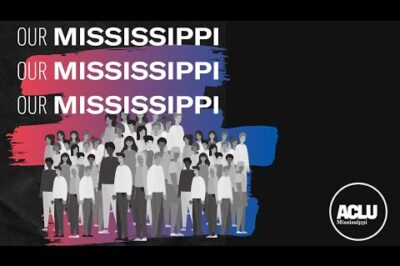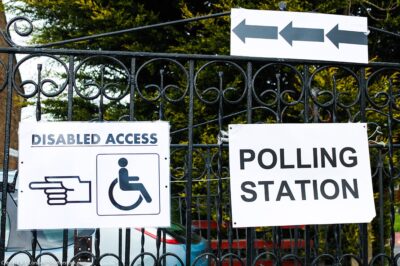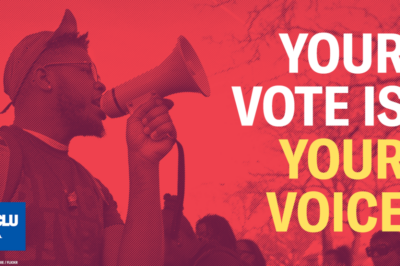Washington Court Strikes Down Modern Form of Poll Tax
FOR IMMEDIATE RELEASE
CONTACT: media@aclu.org
SEATTLE — In a landmark ruling, King County Superior Court Judge Michael Spearman today struck down a Washington law that denies the right to vote to thousands of ex-felons solely because they owe court-imposed fines. The American Civil Liberties Union of Washington filed the lawsuit on behalf of three individuals who are unable to vote because they are too poor to pay off their court-imposed financial obligations.
“It is well recognized that there is simply no rational relationship between the ability to pay and the exercise of constitutional rights,” Judge Spearman wrote in his decision. “There is no logic in the assumption that a person in possession of sufficient resources to pay the [legal financial] obligation immediately is the more law-abiding citizen. Indeed, the better example of respect for our justice system may very well be the indigent who manages for years to make monthly payments toward the obligation.”
ACLU of Washington Executive Director Kathleen Taylor applauded Judge Spearman’s decision.
“Today’s ruling puts an end to this modern form of the poll tax,” said Taylor. “The right to vote is one of our most fundamental rights in a democracy. After people have completed their prison time and have been released back into society, our state should not impose economic barriers to voting.”
Under the state law challenged in the ACLU lawsuit, even though individuals have finished their prison terms, they are not allowed to vote until they completely satisfy a growing number of fines and other financial obligations. The obligations can include docket and filing fees, court costs, restitution and costs of incarceration. Interest on these court-imposed assessments accrues at the exorbitant rate of 12 percent a year.
According to Washington’s statistics, more than 90 percent of felony defendants are indigent at the time of charging. It is no surprise that many ex-felons find it difficult to pay these financial assessments upon release, said the ACLU.
The ACLU called the problem widespread and said it hits people of color especially hard. Overall, more than 250,000 people in Washington cannot vote because of a prior felony conviction. Disenfranchisement affects about four percent of eligible voters in Washington – almost double the national average. And, given the racial disparity in Washington’s incarceration rate, the state disenfranchises almost 25 percent of all voting-age African American males.
The ACLU lawsuit does not seek to eliminate any financial obligations an ex-felon has been assessed. It only asks that the right to vote not be limited by one’s financial ability after release. The state has other means to pursue former felons who fail to satisfy their legal financial obligations.
Plaintiffs in the lawsuit are Dan Madison of King County, Beverly DuBois of Spokane County and Dannielle Garner of Snohomish County. The case (Madison v. State of Washington) drew national attention this year when the New York Times profiled DuBois, who cannot even afford to keep up with the state-imposed interest charges because her only income is from disability payments. A Times editorial on Feb. 27, 2006 called Washington’s system “a form of disenfranchisement that is straight out of Oliver Twist.” The editorial concluded that, “Washington’s policy of stripping people of their right to vote until they can cough up enough money to pay these unfair charges is morally outrageous.”
The ACLU is also working on legislation that will restore ex-felons’ rights to vote when they have completed their prison terms and community supervision. The proposal would ensure that an individual’s right to vote, which the ACLU said is the most important role and responsibility one has as a citizen, is not conditioned on one’s economic status.
Attorneys for the ACLU in this case are Peter Danelo, Molly Terwilliger, Darin Sands and Timothy McMichael of the firm Heller Ehrman White & McAuliffe, ACLU of Washington staff attorney Aaron Caplan, and Neil Bradley of the ACLU Voting Rights Project.
Stay Informed
Every month, you'll receive regular roundups of the most important civil rights and civil liberties developments. Remember: a well-informed citizenry is the best defense against tyranny.




